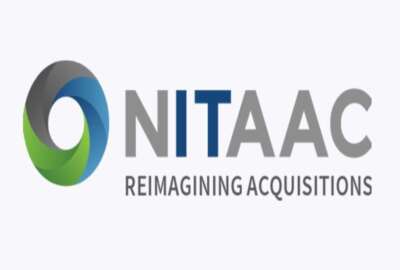GAO upholds 98 protests of CIO-SP4 GWAC
NITAAC’s CIO-SP4 governmentwide acquisition contract may have to go back to Phase 1 of the evaluations after GAO agreed with 98 small firms’ complaints that the...
The Government Accountability Office threw the CIO-SP4 governmentwide acquisition contract into further disarray.
GAO today upheld 98 protests from companies who were eliminated in Phase 1 of the competition for the $50 billion IT services governmentwide acquisition contract run by the National Institutes of Health’s IT Acquisition and Assessment Center (NITAAC).
GAO detailed two major reasons for upholding the protests.
First, it found NITAAC’s record doesn’t show it reasonably evaluated the phase 1 offers.
Second, GAO said NITAAC didn’t reasonable determine which proposals would advance to the next stages of competition.
“GAO also concluded that the agency unreasonably evaluated specific aspects of one offeror’s phase 1 proposal, Sky Solutions LLC. GAO recommended that the agency reevaluate proposals consistent with the decision, and make new determinations of which proposals advance past phase 1 of the competition based on the results of these new evaluations,” GAO said in a release. “GAO denied the remaining arguments raised by the protesters, including untimely challenges to the terms of the solicitation and challenges to other aspects of the evaluations.”
The detailed decisions remain are under protective order until the attorneys for all involved remove any proprietary information.
GAO said it will issue a separate decision addressing the remaining 33 protests filed by firms that were not represented by counsel at a later date.
“The GAO decision and public statement were both issued under a protective order. Therefore, to respect and honor the GAO process, we will issue a public statement when the decision has been redacted and made public,” said Ricky Clark, NITAAC deputy director, in an email to Federal News Network.
In all, CIO-SP4 has faced 314 total protests since 2021 with most having been dismissed, denied or withdrawn until now.
But this latest decision by GAO likely will force NITAAC to back track from its initial awards or reopen evaluations for the 98 companies. NITAAC made an initial 431 awards under CIO-SP4 in March only to face 131 new protests.
CIO-SP4 has been challenging from the start. NITAAC issued 16 amendments since it released the solicitation in May 2021. It has taken corrective action to fix concerns around how it applied the mentor-protégé program and joint ventures.
The protest, corrective action, protest, award, protest carousel forced NITAAC to extend CIO-SP3 yet again in May. CIO-SP3 is now available for agencies to place orders against until October, which is about 18 months after its initial expected end date.
Larry Allen, president of Allen Federal Business Partners and an acquisition expert, said the GAO decision isn’t just about CIO-SP4, but really about all large scale and popular multiple award, indefinite delivery, indefinite quantity contracts.
“The message is that agencies must follow the evaluation criteria in their request for proposals and not rush to down-select companies merely to get a program under way. I can certainly understand the pressure to get CIO-SP4 up and running, but the GAO decision clearly said that agencies can’t cut evaluation corners to do that,” Allen said. “Today’s decision is merely the latest in a string of sustainment’s, which indicate that NIH and their IDIQ counterparts in other agencies need to be very careful about what they put in an RFP and then be careful to adhere to that precise language.”
Allen added other agencies and vendors are watching CIO-SP4 closely to see how GAO responded.
He said the success of the protestors may encourage others to file complaints against future GWACs or large multiple award contracts.
“Whether at GAO or the Court of Federal Claims, protestors have undeniably racked up some notable successes in challenging agency decisions and evaluations,” he said. “This should put all IDIQ agencies, especially GSA, on notice. Procurement lead times for any IDIQ should be increased in order to address both pre and post-award protests.”
Copyright © 2025 Federal News Network. All rights reserved. This website is not intended for users located within the European Economic Area.
Jason Miller is executive editor of Federal News Network and directs news coverage on the people, policy and programs of the federal government.
Follow @jmillerWFED







